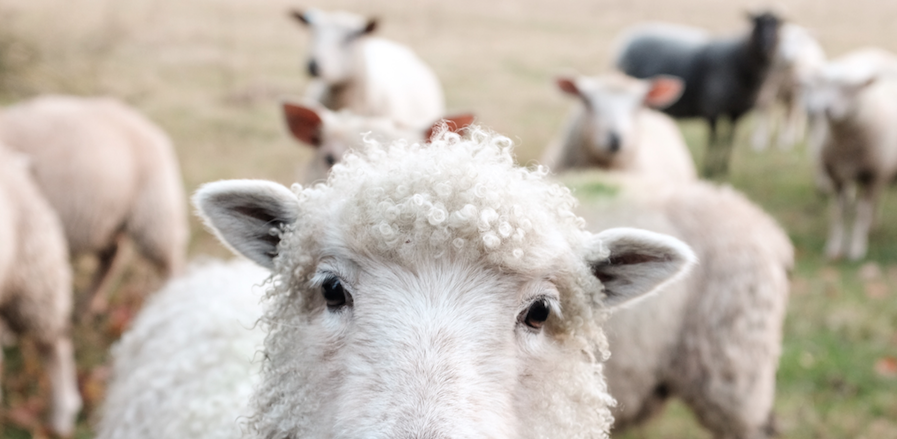By David Faust
 The problems of our time won’t be solved by better government, but by better shepherds.
The problems of our time won’t be solved by better government, but by better shepherds.
The Role of Shepherds
Shepherds feed the flock, guiding their sheep to green pastures and quiet streams. “The Lord is my shepherd, I lack nothing” (Psalm 23:1).
Shepherds fight for the flock. “Your rod and your staff, they comfort me” (v. 4). Unlike creatures equipped with sharp teeth and claws or swift feet, sheep have few natural defenses. They rely on their caretakers to ward off predators, thieves, and wolves. The Good Shepherd protects the sheep even if it costs his own life (John 10:11).
Shepherds find the lost. They search for strays and bring them back to the fold, knowing that sheep without a shepherd are hungry, harassed, and helpless (Matthew 9:36).
Shepherds forgo their own comforts. In biblical times shepherding wasn’t a life of leisure. Shepherds didn’t just sit passively on a hillside while their sheep grazed nearby. Sheep herding wasn’t a hobby; it was a demanding vocation that required personal sacrifice. Sheep produced wool for clothing and meat for eating, but in addition to their economic value, sheep were raised for sacrificial purposes. Shepherding and sacrifice go together. When Jesus was born in Bethlehem, the shepherds nearby may have been raising sheep for sacrifice in the temple a few miles away.
Turning the Question Around
Jesus claimed to be the Good Shepherd in John 10, and in Luke 10 he told about the Good Samaritan who became an unlikely hero by caring for a fallen traveler. Jesus’ story was prompted by the question, “Who is my neighbor?” But the Lord turned the question around so it became, “To whom will I be a neighbor?”
Samaritans and good shepherds have a lot in common. Shepherds provide and protect, and that’s what the Samaritan did for the man who had been robbed, beaten, and left for dead along the road. Interrupting his own plans and sacrificing his own money, the kindhearted passerby transported the victim to a safe place and paid for him to stay there until he got well. The Good Samaritan poured oil and wine onto the beaten man’s wounds, bringing to mind Psalm 23:5, which says, “You anoint my head with oil.”
Everybody needs a shepherd, and not only when we’re wounded and abandoned by the side of the road. Who wouldn’t say, “I need ‘goodness and love’ to follow me ‘all the days of my life’” (v. 6)? Who doesn’t want to “dwell in the house of the Lord forever” (v. 6)? But there comes a time when we must look beyond our own needs to the needs of others. As we grow in Christ, God calls us not only to enjoy the security of the flock, but also to accept the responsibilities of the shepherd.
Someone in your circle of influence needs shepherding. It might be a grandchild or a coworker, a classmate or a friend. It might be someone from an age group or a culture different from your own, perhaps a person who lives far away and communicates with you by email or phone. The hungry sheep are many, but the workers are few.
To whom will you be a shepherd? Instead of asking, “Who will take care of me?” are you willing to ask, “Who needs me to lead them to greener pastures?”
David Faust serves as the Associate Minister at East 91st Street Christian Church in Indianapolis, Indiana.
Based on International Sunday School Lesson, © 2013, by the Lesson Committee. Scripture quotations are from the New International Version ©2011, unless otherwise indicated.
As you apply today’s Scripture study to everyday life, read Engage Your Faith by David Faust and the correlating Evaluation Questions.
|
Daily Readings |
|||
|
March 20 |
M. |
Joel 2:1-11 |
The Prophesied Day of the Lord |
|
March 21 |
T. |
Joel 2:15-17 |
The People Called to Repent |
|
March 22 |
W. |
Joel 2:20-27 |
God Restores Land and People |
|
March 23 |
T. |
Acts 2:14-21 |
Day of the Lord at Pentecost |
|
March 24 |
F. |
2 Peter 3:1-10 |
The Final Day of the Lord |
|
March 25 |
S. |
Joel 3:1-3, 18-21 |
God Judges Nations; Proclaims Judah’s Future |
|
March 26 |
S. |
Joel 2:12-13, 18-19, 28-32 |
Our Gracious and Merciful God |



Comments: no replies